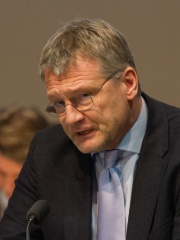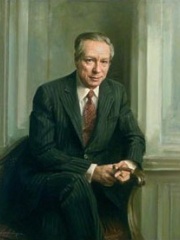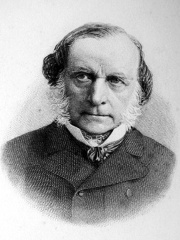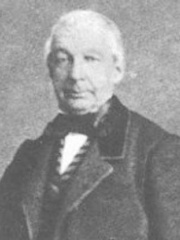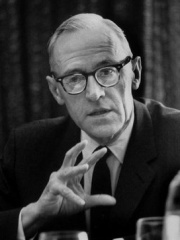
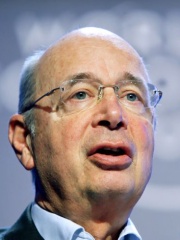
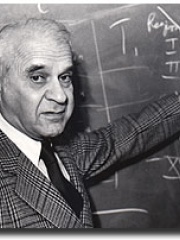
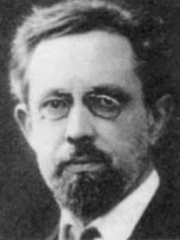
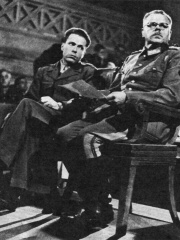

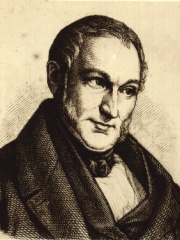
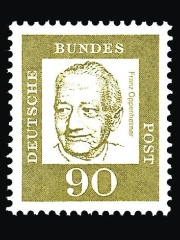
The Most Famous
ECONOMISTS from Germany
This page contains a list of the greatest German Economists. The pantheon dataset contains 414 Economists, 38 of which were born in Germany. This makes Germany the birth place of the 3rd most number of Economists behind United States, and United Kingdom.
Top 10
The following people are considered by Pantheon to be the top 10 most legendary German Economists of all time. This list of famous German Economists is sorted by HPI (Historical Popularity Index), a metric that aggregates information on a biography's online popularity. Visit the rankings page to view the entire list of German Economists.

1. Karl Marx (1818 - 1883)
With an HPI of 92.24, Karl Marx is the most famous German Economist. His biography has been translated into 206 different languages on wikipedia.
Karl Marx (German: [ˈkaʁl ˈmaʁks]; 5 May 1818 – 14 March 1883) was a German philosopher, political theorist, economist, journalist, and revolutionary socialist. He is best-known for the 1848 pamphlet The Communist Manifesto (written with Friedrich Engels), and his three-volume Das Kapital (1867–1894), a critique of classical political economy which employs his theory of historical materialism in an analysis of capitalism, in the culmination of his life's work. Marx's ideas and their subsequent development, collectively known as Marxism, have had enormous influence. Born in Trier in the Kingdom of Prussia, Marx studied at the University of Bonn and the University of Berlin, and received a doctoral degree in philosophy from the University of Jena in 1841. A Young Hegelian, he was influenced by the philosophy of Georg Wilhelm Friedrich Hegel, and both critiqued and developed Hegel's ideas in works such as The German Ideology (written 1846) and the Grundrisse (written 1857–1858). While in Paris, Marx wrote his Economic and Philosophic Manuscripts of 1844 and met Engels, who became his closest friend and collaborator. After moving to Brussels in 1845, they were active in the Communist League, and in 1848 they wrote The Communist Manifesto, which expresses Marx's ideas and lays out a programme for revolution. Marx was expelled from Belgium and Germany, and in 1849 moved to London, where he wrote The Eighteenth Brumaire of Louis Bonaparte (1852) and Das Kapital. From 1864, Marx was involved in the International Workingmen's Association (First International), in which he fought the influence of anarchists led by Mikhail Bakunin. In his Critique of the Gotha Programme (1875), Marx wrote on revolution, the state and the transition to communism. He died stateless in 1883 and was buried in Highgate Cemetery. Marx's critiques of history, society and political economy hold that human societies develop through class conflict. In the capitalist mode of production, this manifests itself in the conflict between the ruling classes (the bourgeoisie) that control the means of production and the working classes (the proletariat) that enable these means by selling their labour power for wages. Employing his historical materialist approach, Marx predicted that capitalism produced internal tensions like previous socioeconomic systems and that these tensions would lead to its self-destruction and replacement by a new system known as the socialist mode of production. For Marx, class antagonisms under capitalism—owing in part to its instability and crisis-prone nature—would eventuate the working class's development of class consciousness, leading to their conquest of political power and eventually the establishment of a classless, communist society constituted by a free association of producers. Marx actively pressed for its implementation, arguing that the working class should carry out organised proletarian revolutionary action to topple capitalism and bring about socio-economic emancipation. Marx has been described as one of the most influential figures of the modern era, and his work has been both lauded and criticised. Marxism has exerted major influence on socialist thought and political movements, with Marxist schools of thought such as Marxism–Leninism and its offshoots becoming the guiding ideologies of revolutions that took power in many countries during the 20th century, forming communist states. Marx's work in economics has had a strong influence on modern heterodox theories of labour and capital, and he is often cited as one of the principal architects of modern sociology.

2. Klaus Schwab (b. 1938)
With an HPI of 74.42, Klaus Schwab is the 2nd most famous German Economist. His biography has been translated into 44 different languages.
Klaus Martin Schwab (German: [klaʊs ˈmaʁtiːn ʃvaːp]; born 30 March 1938) is a German mechanical engineer, economist, and founder of the World Economic Forum (WEF). He served as the WEF's chairman from 1971 until his resignation in 2025.

3. Wassily Leontief (1906 - 1999)
With an HPI of 72.12, Wassily Leontief is the 3rd most famous German Economist. His biography has been translated into 61 different languages.
Wassily Wassilyevich Leontief (Russian: Васи́лий Васи́льевич Лео́нтьев; August 5, 1905 – February 5, 1999) was a Soviet-American economist known for his research on input–output analysis and how changes in one economic sector may affect other sectors. Leontief was awarded the Nobel Memorial Prize in Economic Sciences in 1973, and four of his doctoral students have also been awarded the prize (Paul Samuelson 1970, Robert Solow 1987, Vernon L. Smith 2002, Thomas Schelling 2005).

4. Werner Sombart (1863 - 1941)
With an HPI of 70.29, Werner Sombart is the 4th most famous German Economist. His biography has been translated into 41 different languages.
Werner Sombart (; German: [ˈzɔmbaʁt]; 19 January 1863 – 18 May 1941) was a German economist, historian and sociologist. Head of the "Youngest Historical School," he was one of the leading Continental European social scientists during the first quarter of the 20th century. The term "late capitalism" is accredited to him. The concept of "creative destruction" associated with capitalism is also of his coinage. His magnum opus was Der moderne Kapitalismus. It was published in three volumes from 1902 through 1927. In Kapitalismus he described four stages in the development of capitalism from its earliest iteration as it evolved out of feudalism, which he called proto-capitalism to early, high and, finally, late capitalism – Spätkapitalismus – in the post World War I period.
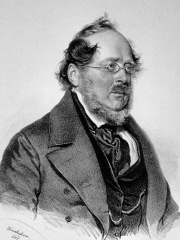
5. Friedrich List (1789 - 1846)
With an HPI of 69.40, Friedrich List is the 5th most famous German Economist. His biography has been translated into 35 different languages.
Daniel Friedrich List (6 August 1789 – 30 November 1846) was a German entrepreneur, diplomat, economist and political theorist who developed the nationalist theory of political economy in both Europe and the United States. He was a forefather of the German historical school of economics and argued for the Zollverein (a pan-German customs union) from a nationalist standpoint. He advocated raising tariffs on imported goods while supporting free trade of domestic goods and stated the cost of a tariff should be seen as an investment in a nation's future productivity. His theories and writing also influenced the American school of economics. List was a political liberal who collaborated with Karl von Rotteck and Carl Theodor Welcker on the Rotteck-Welckersches Staatslexikon, an encyclopedia of political science that advocated constitutional liberalism and which influenced the Vormärz. At the time in Europe, liberal and nationalist ideas were almost inseparably linked, and political liberalism was not yet attached to what was later considered "economic liberalism." Emmanuel Todd considers List a forerunner to John Maynard Keynes as a theorist of "moderate or regulated capitalism."

6. Albert O. Hirschman (1915 - 2012)
With an HPI of 68.71, Albert O. Hirschman is the 6th most famous German Economist. His biography has been translated into 31 different languages.
Albert Otto Hirschman (born Otto Albert Hirschmann; April 7, 1915 – December 10, 2012) was an American economist. He was the author of several influential books on development economics, political economy, and political ideology including The Strategy of Economic Development (1958), Exit, Voice, and Loyalty (1970), The Passions and the Interests (1977), and The Rhetoric of Reaction (1991). He was a founding figure in the School of Social Science at the Institute for Advanced Study and an influential economic advisor to Latin American leaders. In World War II, he played a key role in rescuing refugees from occupied France with the Emergency Rescue Committee.

7. Eugen Dühring (1833 - 1921)
With an HPI of 68.57, Eugen Dühring is the 7th most famous German Economist. His biography has been translated into 31 different languages.
Eugen Karl Dühring (German: [ˈdyːʁɪŋ]; 12 January 1833 – 21 September 1921) was a Positivist Socialist German philosopher and economist who was a strong critic of Marxism.

8. Johann Heinrich von Thünen (1783 - 1850)
With an HPI of 68.00, Johann Heinrich von Thünen is the 8th most famous German Economist. His biography has been translated into 29 different languages.
Johann Heinrich von Thünen (24 June 1783 – 22 September 1850), sometimes spelled Thuenen, was a prominent nineteenth-century economist and a native of Mecklenburg-Strelitz, now in northern Germany. Even though he never held a professorial position, Thünen had substantial influence on economics. He has been described as one of the founders of agricultural economics and economic geography. He made substantial contributions to economic debates on rent, land use, and wages.

9. Franz Oppenheimer (1864 - 1943)
With an HPI of 66.73, Franz Oppenheimer is the 9th most famous German Economist. His biography has been translated into 28 different languages.
Franz Oppenheimer (March 30, 1864 – September 30, 1943) was a German sociologist and political economist, who published also in the area of the fundamental sociology of the state.

10. Alfred Weber (1868 - 1958)
With an HPI of 66.72, Alfred Weber is the 10th most famous German Economist. His biography has been translated into 25 different languages.
Carl David Alfred Weber (German: [ˈveːbɐ]; 30 July 1868 – 2 May 1958) was a German economist, geographer, sociologist, philosopher, and theoretician of culture whose work was influential in the development of modern economic geography. His other work focused on the sociology of knowledge and the role of intellectuals in society. In particular, he introduced the concept of free-floating intelligentsia (Freischwebende Intelligenz). He was the brother of influential sociologist Max Weber.
People
Pantheon has 38 people classified as German economists born between 1779 and 1977. Of these 38, 6 (15.79%) of them are still alive today. The most famous living German economists include Klaus Schwab, Hans-Hermann Hoppe, and Andreas Kaplan. The most famous deceased German economists include Karl Marx, Wassily Leontief, and Werner Sombart.
Living German Economists
Go to all RankingsKlaus Schwab
1938 - Present
HPI: 74.42
Hans-Hermann Hoppe
1949 - Present
HPI: 64.49
Andreas Kaplan
1977 - Present
HPI: 58.69
Jörg Meuthen
1961 - Present
HPI: 57.94
W. Michael Blumenthal
1926 - Present
HPI: 52.22
Robin Hanson
1959 - Present
HPI: 34.73
Deceased German Economists
Go to all RankingsKarl Marx
1818 - 1883
HPI: 92.24
Wassily Leontief
1906 - 1999
HPI: 72.12
Werner Sombart
1863 - 1941
HPI: 70.29
Friedrich List
1789 - 1846
HPI: 69.40
Albert O. Hirschman
1915 - 2012
HPI: 68.71
Eugen Dühring
1833 - 1921
HPI: 68.57
Johann Heinrich von Thünen
1783 - 1850
HPI: 68.00
Franz Oppenheimer
1864 - 1943
HPI: 66.73
Alfred Weber
1868 - 1958
HPI: 66.72
Lorenz von Stein
1815 - 1890
HPI: 66.67
Hermann Heinrich Gossen
1810 - 1858
HPI: 66.46
Oskar Morgenstern
1902 - 1977
HPI: 66.31
Overlapping Lives
Which Economists were alive at the same time? This visualization shows the lifespans of the 25 most globally memorable Economists since 1700.



